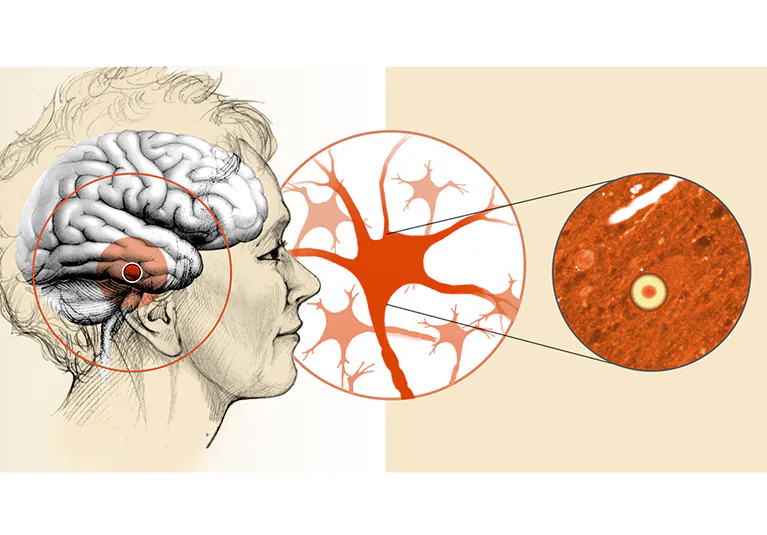Many people in India have Lewy body dementia. Are you suffering from this condition as well?
In this article, we have discussed what Lewy body dementia is, its symptoms, and its treatment. Let us understand what Lewy body dementia is.
What is Lewy body dementia?
Lewy body dementia (LBD) is a progressive condition containing abnormal protein deposits known as alpha-synuclein in the brain. The deposits are known as Lewy bodies. You can get Lewy body dementia treated by a neurosurgeon in India.
LBD is a term that involves two diseases that have the same signs those are dementia with Lewy bodies and Parkinson’s disease dementia.
Lewy bodies build in nerve cells inside your brain that affect your thinking and motor control. When you think about dementia, you may consider it as Alzheimer’s disease. The two conditions vary in that Alzheimer’s causes severe memory issues, and LBD is most likely to influence how you process details. Also, LBD brings physical signs like muscle stiffness and tremor.
It is likely underdiagnosed due to early signs similar to Alzheimer’s disease and Parkinson’s. The cause of LBD is not exact, so there is no known way of stopping it. The treatment for LBD is focused on controlling the symptoms. Continue reading so you can learn more about the signs.
What are the symptoms?

There are four stages in which symptoms usually start. These include:
- Physical signs like tremor, motor issues, and balance problems
- Memory problems and cognitive issues
- Neuropsychiatric signs like hallucinations, behavioral issues, and issues with complicated mental tasks
- Variations in attention and alertness
No matter how it begins, LBD ultimately progresses to the same cognitive, physical, and behavioral symptoms.
These involve:
- Cognitive problems, like difficultly in processing information and planning
- Spatial and visual problems
- Tremors and other movement issues, like muscle stiffness, that makes it difficult to walk
- Agitation or irritability
- Hallucinations that are properly formed and detailed, or delusions
- Apathy or depression
- Paranoia or anxiety
- Sleep disorders, involving acting out dreams when asleep
- The need to nap or daytime sleepiness
- Staring, difficulty in paying attention, or varying attention span
- Disorganized speech
LBD can affect your autonomic nervous system as well. This can progress to poor management of your:
- Pulse, blood pressure, and heart rate
- Body temperature and perspiration
- Digestive functions
This can lead you to:
- Extreme sweating
- Bladder and bowel issues
- Dizziness, which can raise the chance of falling
What causes LBD?
Research has yet to discover the cause of Lewy body dementia. It is known that individuals with LBD have abnormal protein clusters, known as Lewy bodies, in their brains. Lewy bodies disturb your brain function.
Several individuals who have dementia with Lewy bodies do not have a family history of the condition. Till now, there is no exact genetic cause.
Around fifty and eighty percent of individuals with Parkinson’s disease later get Parkinson’s disease dementia. It is not known why few people do and others do not. Scientists are not sure what prompts the proteins to grow initially.
Who is at risk of LBD?
Not everybody with Parkinson’s condition will grow LBD but having Parkinson’s may raise LBD chances. Your risk might get higher if someone in your family had Parkinson’s disease or LBD. It is most likely to get diagnosed in people older than sixty and men more usual than women. LBD can also develop due to depression.
How is it diagnosed?
Early diagnosis is essential, as few drugs used to treat Alzheimer’s and Parkinson’s can worsen LBD. Yet, that is not easy as no one test can properly diagnose LBD.
Below are a few tests and exams that can assist your specialist in arriving at the right diagnosis. Physical examination may involve testing of:
- Blood pressure and heart rate
- Strength and muscle tone
- Reflexes
- Coordination and balance
- Sense of touch
- Eye movements
Your specialist will look for symptoms of Parkinson’s disease, tumors, or stroke. Blood tests can help identify thyroid issues and vitamin B-12 deficiency, which can affect your brain function. This may allow ruling out LBD.
An assessment of mental abilities, like thinking skills and memory, can suggest signs of dementia.
Imaging tests, like MRI, PET, or CT scans, can help diagnose brain bleeding, tumors, and stroke.
Sleep evaluation can show REM sleep behavior disorder.
Autonomic function testing finds for symptoms of blood pressure and heart rate instability.
How is Lewy body dementia treated?
There is no treatment to slow or prevent disease progression. Treatment can only make symptoms more controllable.
What is the outlook?
There is no method to prevent LBD’s progression. It continues to affect your motor functions and cognitive abilities. It needs lifelong medical attention. Few symptoms can be controlled, but medicines must be monitored and controlled as required.
If you have LBD, you will require assistance provided with your family and professional caregivers’ help. The average life expectancy is eight years after the disease is diagnosed.
